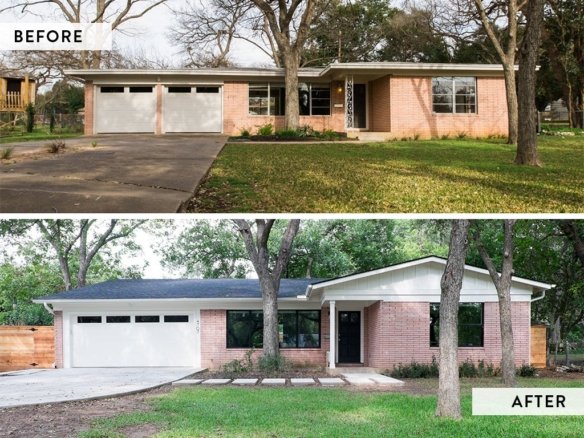Intro
Investing in rental properties can be a lucrative way to generate passive income and build long-term wealth. However, not all rental properties are created equal. From single-family homes to large apartment complexes and short-term rentals, each type of investment offers unique opportunities and challenges. In this blog post, we will compare and contrast different rental property options and help you decide which might be the best fit for your financial goals.
Single-Family Homes
Pros:
- Lower Entry Costs: Single-family homes typically require less upfront capital than multifamily properties or commercial buildings.
- Easier to Finance: Lenders often have favorable loan terms for single-family investments, making it easier to secure financing.
- High Tenant Demand: Many families and long-term renters prefer the privacy and space of a single-family home.
- Appreciation Potential: SFHs often appreciate more steadily compared to multifamily properties.
- Simpler Management: With only one tenant to manage, maintenance and property oversight are less complex.
Cons:
- Higher Vacancy Risk: If the tenant moves out, the entire property is vacant, meaning no rental income until a new tenant is found.
- Limited Cash Flow: While appreciation potential is high, cash flow may be lower compared to multifamily properties.
- Limited Scalability: Investors must acquire multiple properties to build a larger portfolio.
Small Multifamily Properties (Duplexes, Triplexes, Fourplexes)
Pros:
- Increased Cash Flow: Multiple units mean multiple rental income streams, reducing vacancy risk.
- Owner-Occupancy Benefits: Investors can live in one unit while renting out the others, benefiting from owner-occupied financing options even FHA financing with as little as 3.5% down payment.
- Economies of Scale: Maintenance and property management costs are spread across multiple units.
- Easier to Finance Than Larger Complexes: Properties with up to four units still qualify for residential financing options.
- Economies of Scale: Shared maintenance costs among multiple units improve profitability.
Cons:
- Higher Upfront Costs: Purchasing a multifamily property is usually more expensive than a single-family home.
- More Complex Management: Managing multiple tenants requires more effort, or hiring a property manager, which can cut into profits.
- Resale Challenges: These properties appeal mainly to investors, which can make selling them more difficult.
Larger Apartment Complexes (5+ Units)
Pros:
- Strong Cash Flow Potential: More units generate significant rental income, making them ideal for scaling a real estate portfolio.
- Professional Management: Large properties can justify hiring a property management company to handle day-to-day operations.
- Less Vacancy Risk: With multiple tenants, losing one or two does not drastically impact revenue.
- Better Financing Options for Experienced Investors: Commercial loans can provide more flexibility and funding options based on the property, not the borrower’s credit.
- Forced Appreciation: By making improvements, rents can be increased which drives the value both in monthly cash flow, but also overall asset value.
Cons:
- Expensive Entry Point: These properties require substantial capital, making them less accessible for beginner investors. However, with the right mentor/network, even someone with limited money and experience can get into the game and make money upfront AND participate in the cash flow!
- More Regulations and Complexities: Larger buildings are subject to additional zoning laws, tenant regulations, and maintenance requirements.
- Financing Complexity: Commercial loans have stricter qualification criteria and shorter terms.
Short-Term Rentals (Airbnb, VBRO, Vacation Homes)
Pros:
- Higher Income Potential: Short-term rentals can generate significantly more income than long-term leases, especially in high-demand tourist areas. Use tools like: AirDNA to analyze rental income potential.
- Flexibility: Owners can block off dates for personal use, making it a dual-purpose investment.
- Tax Benefits: Depending on usage and structure, short-term rentals may offer unique tax advantages.
Cons:
- Seasonal Variability: Income fluctuates with travel trends, which can make cash flow inconsistent.
- Higher Operating Costs: Frequent turnovers require more cleaning, maintenance, and management effort.
- Regulatory Challenges: Many cities have strict rules or outright bans on short-term rentals, making it essential to research local laws before investing.
Co-Living Spaces (Shared Housing)
Pros:
- Maximized Rent per Square Foot: Renting out individual rooms can generate higher overall income.
- High Demand in Urban Areas: Millennials and digital nomads increasingly seek affordable, flexible housing options.
- Lower Vacancy Rates: More tenants sharing the space can mean consistent occupancy.
Cons:
Potential for Conflict: Shared living situations can lead to interpersonal disputes.
More Management Intensive: Managing multiple tenants in shared spaces can be challenging.
Higher Turnover: Shorter lease terms can lead to frequent tenant changes.
Which Rental Strategy is Best for You?
Choosing the right rental property investment depends on your financial goals, risk tolerance, and management preference:
- If you seek an easy entry point and long-term appreciation, single-family homes may be ideal.
- If you want more cash flow with manageable complexity, small multifamily properties offer a good balance.
- If you have significant capital and want scalable income, large apartment complexes provide strong financial potential.
- If you prefer a hands-on, high-reward strategy, short-term rentals or co-Living spaces could be the best choice.
Regardless of which type you choose, investing in rental properties requires thorough market research, financial planning, property management and an understanding of market trends. With the right approach, rental real estate can be a powerful wealth-building tool that provides steady income for years to come.
Which rental property type interests you the most? Share your thoughts in the comments!





Join The Discussion